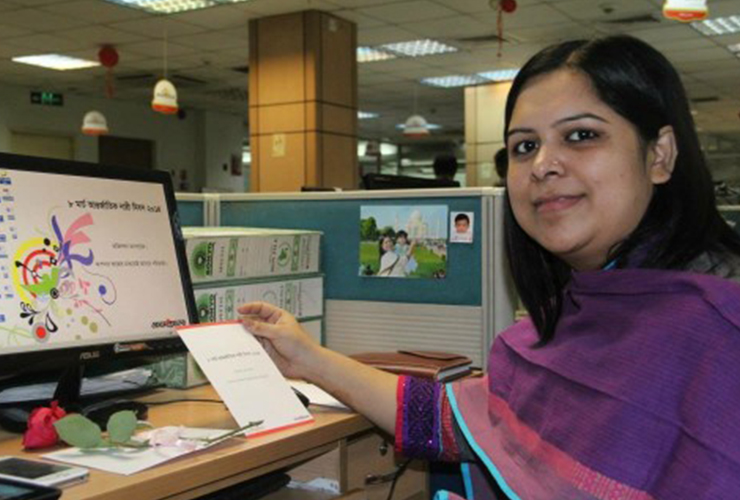The IPI global network condemns the Bangladeshi government’s continued harassment of journalist Rozina Islam. Authorities must immediately drop all charges against her and respect the right of journalists to report on topics of public interest.
On January 23, 2023, over seven months after a final police report found that Islam should be cleared of charges related to her reporting on Bangladesh’s purchase of Covid-19 vaccines due to lack of evidence, the deputy secretary of the country’s health ministry, Shibbir Ahmed Osman, filed a petition rejecting the report and demanding the court reopen the investigation. His petition was immediately accepted by the Chief Metropolitan Magistrate (CMM) Court of Dhaka.
Islam, a journalist with the leading Bengali-language newspaper Prothom Alo, is known for her investigative reporting on corruption in the health sector during the pandemic. She was arrested on May 17, 2021, following a visit to the Ministry of Health, where officials claimed that she took pictures with her mobile phone of documents related to Bangladesh’s Covid-19 vaccine purchases. Before being formally detained, Islam was held for six hours in the office of the Ministry of Health in the Central Secretariat Building, where she reportedly suffered physical and verbal assault. Police also confiscated her phone, passport, and other personal belongings.
The arrest of the award-winning journalist caused major backlash from national and international organizations, as well as civil society, and she was released on bail on May 23, 2021. A year later, on July 3, 2022, the Dhaka Metropolitan Police submitted a final report on her case, requesting Islam’s acquittal, as no evidence was found to support the allegations against her.
Islam has been charged with the theft and photographing of sensitive state documents under the Penal Code and the draconian 1923 Official Secrets Act, charges which leave her facing up to 14 years in prison or even the death penalty.
“IPI urges the Bangladeshi government to drop the disproportionate charges against Rozina Islam”, IPI Head of Advocacy Amy Brouillette said. “The years-long legal proceedings and harassment against her by the Ministry of Health have a chilling effect on investigative reporting in Bangladesh, and this case illustrates the broader challenges independent media faces in the country. Journalists who expose government corruption continue to be at risk, with the authorities using archaic legislation to intimidate and silence them.”
Islam and her family have faced intense harassment, including monitoring of her financial transactions. The Ministry of Health has also targeted her online by discrediting and harassing her with smear campaigns.
Press freedom in Bangladesh has been under increasing pressure in recent years, and journalists in the country face constant physical attacks and threats, legal harassment and arrests, as well as censorship and surveillance. IPI documented at least 30 press freedom violations in the country between April and September 2022.
